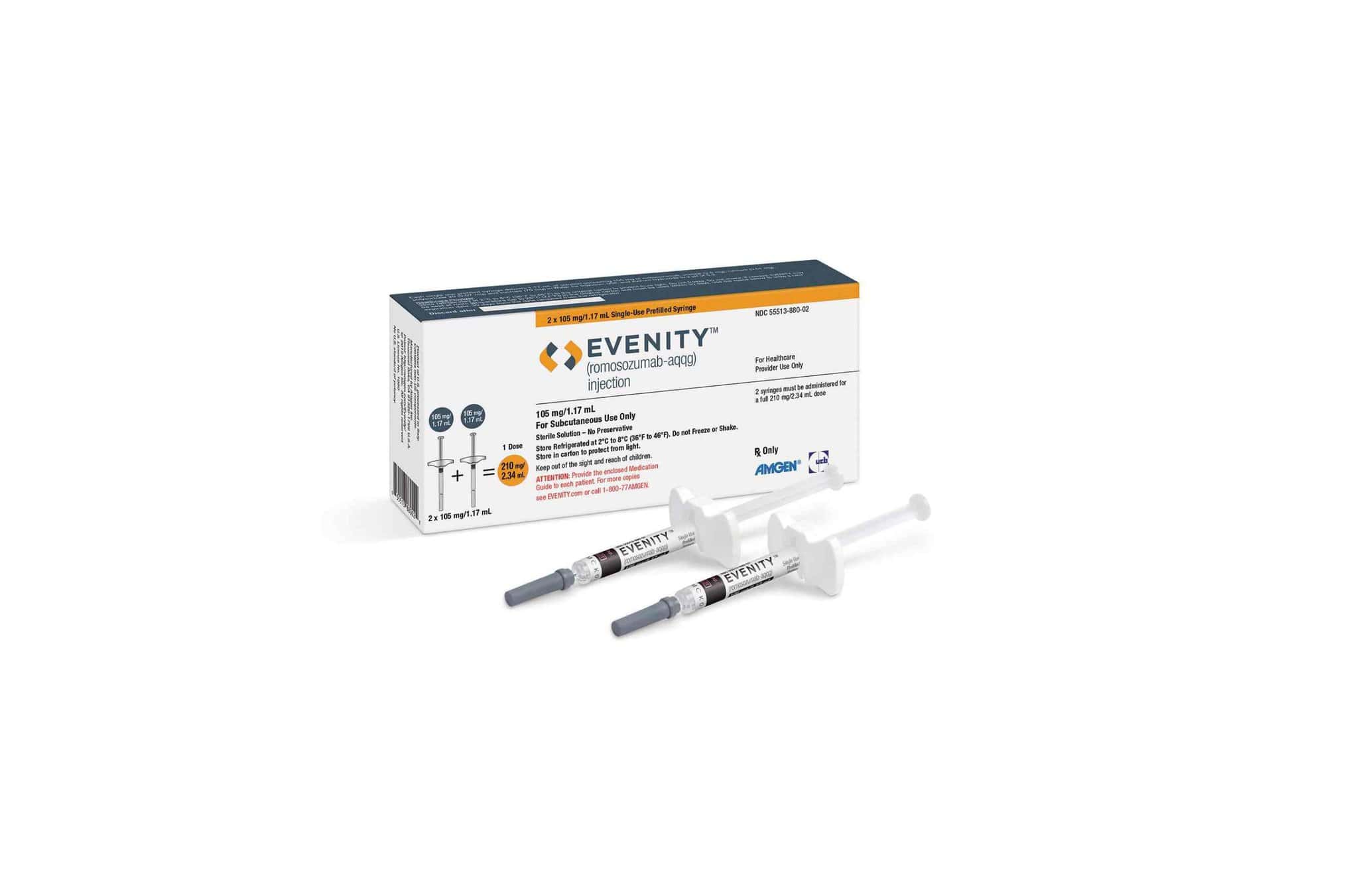
The main advisory committee for new drugs in the EU has rejected UCB and Amgen’s application for their severe osteoporosis drug Evenity.
The Committee for Medicinal Products for Human Use (CHMP) issued a negative opinion on first-in-class antibody treatment Evenity (romosozumab), putting yet another obstacle in the path of a drug that has had a tortuous time on its way to market.
Evenity was filed in the US and Japan in 2016 on the strength of the FRAME study, which showed impressive activity in reducing fracture rates and improving bone mineral density in postmenopausal women with osteoporosis.
FRAME was however followed by a second trial called ARCH, that matched the efficacy of the first trial but also raised some concerns about cardiovascular safety. The FDA subsequently rejected the application in 2017, asking for a re-analysis of the data from all studies to explore the possible safety risk.
Fast forward to earlier this year, and an FDA advisory committee voted in favour of approval thanks to the re-analysis, with the FDA approving it in April. However, it was cleared with a warning on the label that it may increase the risk of heart attack, stroke and cardiovascular death, and analysts at Jefferies have predicted this will limit its use and restrict sales to around $500m.
Amgen needs a successor to its $2bn a year osteoporosis blockbuster Prolia (denosumab), which is approaching the end of its patent life – but Evenity was already looking unlikely to fill the void. Now, the EU rejection makes that task even harder.
Amgen and UCB say they intend to submit a request for a re-examination of the application to the CHMP, but even if that is successful the review will be delayed by some months.
“After a fracture, postmenopausal women with osteoporosis are five times more likely to fracture in the subsequent year, and these fractures can be life-changing. Yet these patients often remain undiagnosed and untreated and could benefit from a new treatment option with 12 monthly doses to reduce their risk of a fracture,” said David Reese, head of R&D at Amgen.
“We are disappointed by the Committee’s opinion and continue to believe that Evenity has a positive benefit:risk profile.”
Evenity is an anti-sclerostin antibody which works by blocking a pathway that inhibits bone growth, resulting in increased bone formation and decreased bone breakdown. It works in a very different way to existing drugs like bisphosphonate alendronate – sold by Merck/MSD as Fosamax – which works only by blocking bone destruction.




